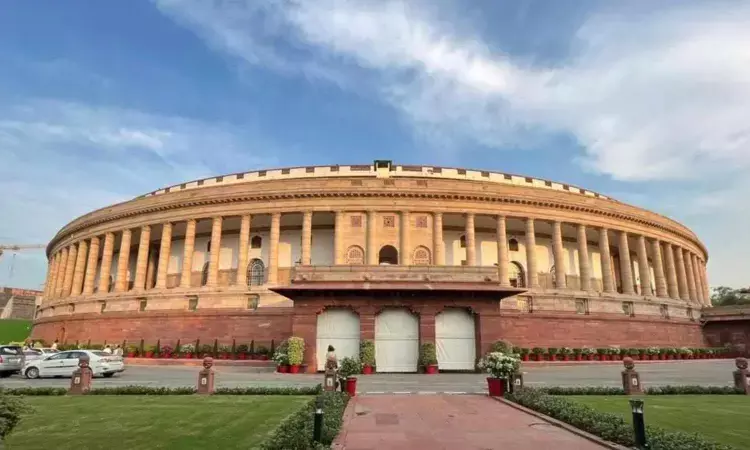- Home
- Medical news & Guidelines
- Anesthesiology
- Cardiology and CTVS
- Critical Care
- Dentistry
- Dermatology
- Diabetes and Endocrinology
- ENT
- Gastroenterology
- Medicine
- Nephrology
- Neurology
- Obstretics-Gynaecology
- Oncology
- Ophthalmology
- Orthopaedics
- Pediatrics-Neonatology
- Psychiatry
- Pulmonology
- Radiology
- Surgery
- Urology
- Laboratory Medicine
- Diet
- Nursing
- Paramedical
- Physiotherapy
- Health news
- Fact Check
- Bone Health Fact Check
- Brain Health Fact Check
- Cancer Related Fact Check
- Child Care Fact Check
- Dental and oral health fact check
- Diabetes and metabolic health fact check
- Diet and Nutrition Fact Check
- Eye and ENT Care Fact Check
- Fitness fact check
- Gut health fact check
- Heart health fact check
- Kidney health fact check
- Medical education fact check
- Men's health fact check
- Respiratory fact check
- Skin and hair care fact check
- Vaccine and Immunization fact check
- Women's health fact check
- AYUSH
- State News
- Andaman and Nicobar Islands
- Andhra Pradesh
- Arunachal Pradesh
- Assam
- Bihar
- Chandigarh
- Chattisgarh
- Dadra and Nagar Haveli
- Daman and Diu
- Delhi
- Goa
- Gujarat
- Haryana
- Himachal Pradesh
- Jammu & Kashmir
- Jharkhand
- Karnataka
- Kerala
- Ladakh
- Lakshadweep
- Madhya Pradesh
- Maharashtra
- Manipur
- Meghalaya
- Mizoram
- Nagaland
- Odisha
- Puducherry
- Punjab
- Rajasthan
- Sikkim
- Tamil Nadu
- Telangana
- Tripura
- Uttar Pradesh
- Uttrakhand
- West Bengal
- Medical Education
- Industry
9,354 Vacant Doctor Posts at Rural PHCs, 1,796 at Urban PHCs: Shri JP Nadda

Lok Sabha
New Delhi: There are nearly 9,354 vacant doctor positions at Primary Health Centres (PHCs) in rural areas and 1,796 vacant posts at PHCs in urban areas across India. To address these shortages, states have recruited almost 3.85 lakh additional healthcare workers with support from the National Health Mission (NHM). This includes 17,485 General Duty Medical Officers (GDMOs) and 80,890 staff nurses, deployed across various levels as of 31st March 2024.
According to the Management Information System (MIS) Report for March 2024, as of March 31, 2024, over 1.39 lakh Community Health Officers (CHOs) have been deployed at Ayushman Arogya Mandirs.
The details in this regard were presented in the Lok Sabha by the Union Minister of Health and Family Welfare, Shri Jagat Prakash Nadda recently. The Minister was asked a series of questions by Parliament member Shri Shafi Parambil who sought to know the number of doctors and nursing staff in Primary Health Centres (PHCs) across the country, State-wise; whether there are vacancies of doctors/nursing staff in each State.
He also inquired if so, the details thereof along with the reasons for not filling the vacancies of medical professionals in each State.
The minister informed that Public Health & hospitals are state subjects and all the administrative and personnel matters related to human resources for health lie with the respective State/UT Governments. However, the Government of India has also taken various steps to support the increase in the number of doctors/ nursing staff available in the country.
Under the National Health Mission (NHM), Ministry of Health & Family Welfare provides financial and technical support to States/UTs to strengthen their healthcare systems by filling the gaps in human resources in secondary and primary care facilities (District hospitals and below) as per Indian Public Health Standards, based on the requirements posed by them in their Programme Implementation Plans (PIPs) within their overall resource envelope.
As per the Management Information System (MIS) Report, March 2024, approximately 3.85 lakh additional human resources have been engaged by states with NHM funding support and deployed at various levels. This includes 17,485 General Duty Medical Officers (GDMOs) and 80,890 Staff Nurses as of 31st March 2024. Additionally, as of 31.03.2024, more than 1.39 lakh Community Health officers (CHOs) are deployed at Ayushman Arogya Mandirs.
Under NHM following types of incentives and honorariums are provided to encourage doctors to practice in rural and remote areas of the country:
1. Hard area allowance to specialist doctors to serve in rural and remote areas and for their residential quarters so that they find it attractive to serve in public health facilities in such areas.
2. Honorarium to Gynecologists/ Emergency Obstetric Care (EmoC) trained, Pediatricians & Anesthetist/ Life Saving Anaesthesia Skills (LSAS) trained doctors is also provided to increase the availability of specialists for conducting Cesarean Sections in rural & remote areas.
3. States are also allowed to offer a negotiable salary to attract specialists including flexibility in strategies such as “You Quote We Pay”.
4. Non-monetary incentives such as preferential admission in postgraduate courses for staff serving in difficult areas and improving accommodation arrangements in rural areas have also been introduced under NHM.
5. Multi-skilling of doctors is supported under NHM to overcome the shortage of specialists. Skill upgradation of existing Human Resources (HR) is another major strategy under NHM for improvement in health outcomes.
Further, there is an increase of 102% in Medical Colleges in the country from 387 in 2014 to 780 as of now. There is also an increase of 130% in MBBS seats from 51,348 in 2014 to 1,18,137 as of now and an increase of 135% in PG seats from 31,185 in 2014 to 73,157 as of now, added the Minister
The measures/steps taken by the Government to increase the number of doctors/medical professionals in the country include:
1. Centrally Sponsored Scheme for establishment of new medical college by upgrading district/ referral hospital under which 157 medical colleges have been approved.
2. Centrally Sponsored Scheme for strengthening/ upgradation of existing State Government/Central Government Medical Colleges to increase MBBS and PG seats.
3. Under “Upgradation of Government Medical Colleges by Construction of Super Specialty Blocks” of Pradhan Mantri Swasthya Suraksha Yojana (PMSSY) scheme, a total of 75 projects have been approved.
4. Under the Central Sector Scheme for setting up new AIIMS, 22 AIIMS have been approved.
5. DNB qualification has been recognized for appointment as faculty to take care of the shortage of faculty.
6. Enhancement of age limit for appointment/ extension/ re-employment against posts of teachers/Dean/Principal/ Director in medical colleges up to 70 years.
Sanchari Chattopadhyay has pursued her M.A in English and Culture Studies from the University of Burdwan, West Bengal. She likes observing cultural specificities and exploring new places.



